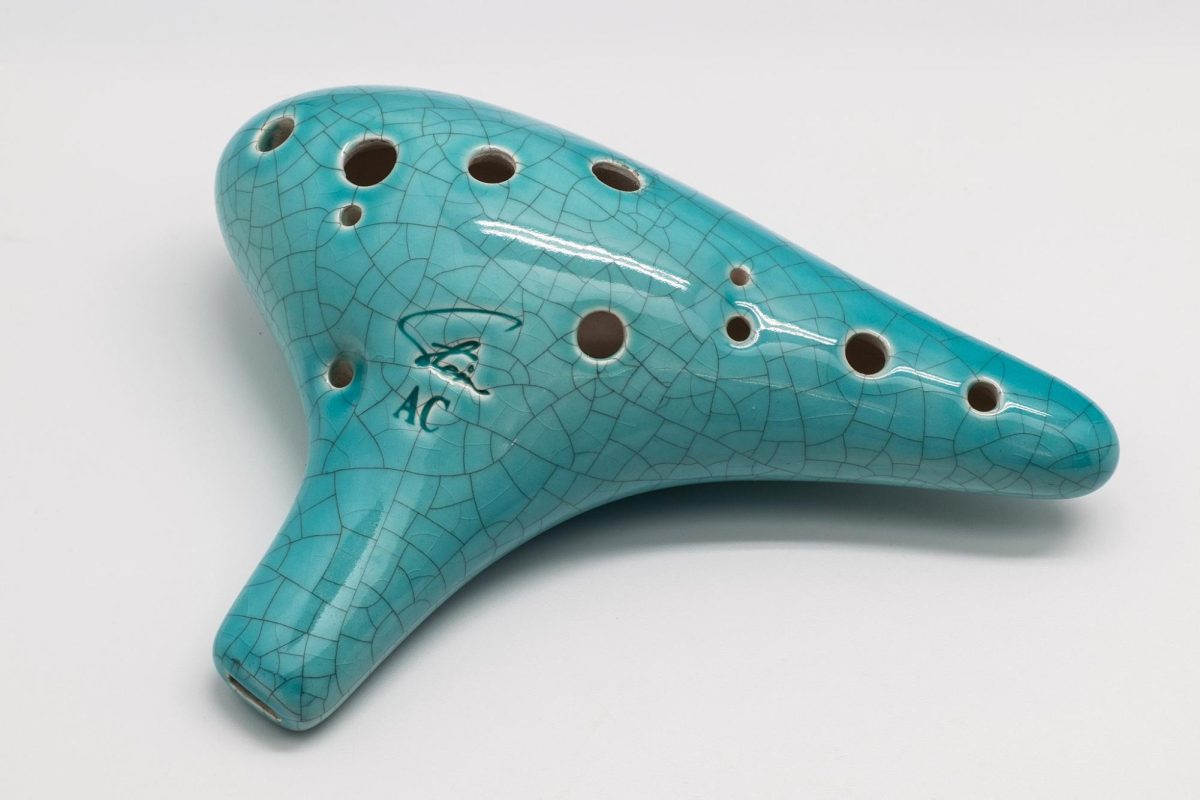Nintendo’s The Legend of Zelda: Ocarina of Time was one of the world’s first video games to utilize 3D graphics. Yet perhaps its most iconic element is its soundtrack, which plays an integral role in the game’s storyline.
With only a small, flute-like instrument called an ocarina, Link, the protagonist of The Legend of Zelda series, ventures off to defeat Ganondorf, who plans to unleash havoc upon the world of Hyrule. Throughout his journey, Link must use his ocarina to play short medleys that unlock secrets, temples, and more. Whether it be the slow and serene “Zelda’s Lullaby” or the poignant and mysterious “Song of Storms,” each melody enhances the setting, unlocks a secret, or simply lets the player feel a part of the game.
At the start of the game, Link lives in the Kokiri Forest where his friend Saria plays an upbeat song, expressing the innocence of an untainted child. But after Link leaves the Kokiri Forest, the only place he has ever known, he is greeted by a mysterious owl, Kaepora Gaebora, and an ominous tune begins to play. This strange melody represents the unknown journeys Link will face in the land of Central Hyrule, a place he is warned will lead to death.
Later in his quest, Link explores the lands of different peoples, each with a unique set of songs. Aquatic, ethereal music plays in Zora’s Domain, fitting of the elegant grace of the Zora people, while primal-sounding music accompanies the setting of Goron City, home of the round, boisterous beings of Death Mountain.
In a place called Gerudo’s Valley, Link must fight off bandits and sneak around their fortress, freeing the thieves’ hostages. During this sequence, a fast-paced song plays in the background, giving the player a sense of excitement. In smaller sidequests, like Link’s entry into a well, the music continues to add to the ambience. Accompanying the gloomy and murky atmosphere of the well, an eerie, echoing soundtrack plays dimly, evoking a feeling of wariness in the player.
The songs that Link plays on his ocarina also bridge a connection between him and the player. The music allows the player to feel what Link feels. For example, the recurrence of “Zelda’s Lullaby” forms a bond between Zelda, the princess of Hyrule, and Link. Similarly, it forms a bond between the player and Zelda as her melody serves as a key to many secrets in the game and a reminder that she is always supporting the player on their journey.
While the game goes through many changes as Link time-travels to the calamity-ridden future and back to the blissful present, music remains a constant between the timelines. It is one of the few things Link does not have to worry about changing. In addition, to travel between time periods, Link must play the haunting yet calming “Song of Time.”
In the torn landscape of the future, occasionally an echo of the “Song of Time” faintly plays in the background, reminding Link that though his world has drastically changed, it is still the same land that once housed his childhood.
Meanwhile, the “Song of Storms,” a song that Link learns in the future but is still able to play in the present, proves that he is not the only exception to the flow of time. When Link travels back to the present, where the wreckage of Hyrule has not yet happened, he alone must save his home from a doomed future. As Link bears his overbearing responsibilities, music like the “Song of Storms” that he may use in both the present and future gives him solace. In the span of just eight notes, the rest of Hyrule seems quiet as Link plays his ocarina.
The sense of nostalgia that music of the Ocarina of Time evokes leaves the soundtrack lingering in players’ heads. The melodies dwell in the hearts of many gamers, Legend of Zelda fans or not. As the franchise has evolved, the Ocarina of Time and its music still plays a crucial part in shaping recent games. In the newest Legend of Zelda game, Tears of the Kingdom, Epona’s song—originally from the Ocarina of Time—plays at stables across Hyrule. The Ocarina of Time will continue to remain at the core of The Legend of Zelda franchise, where its songs leave a sense of bittersweet wonder in the series, and throughout the gaming world today.


